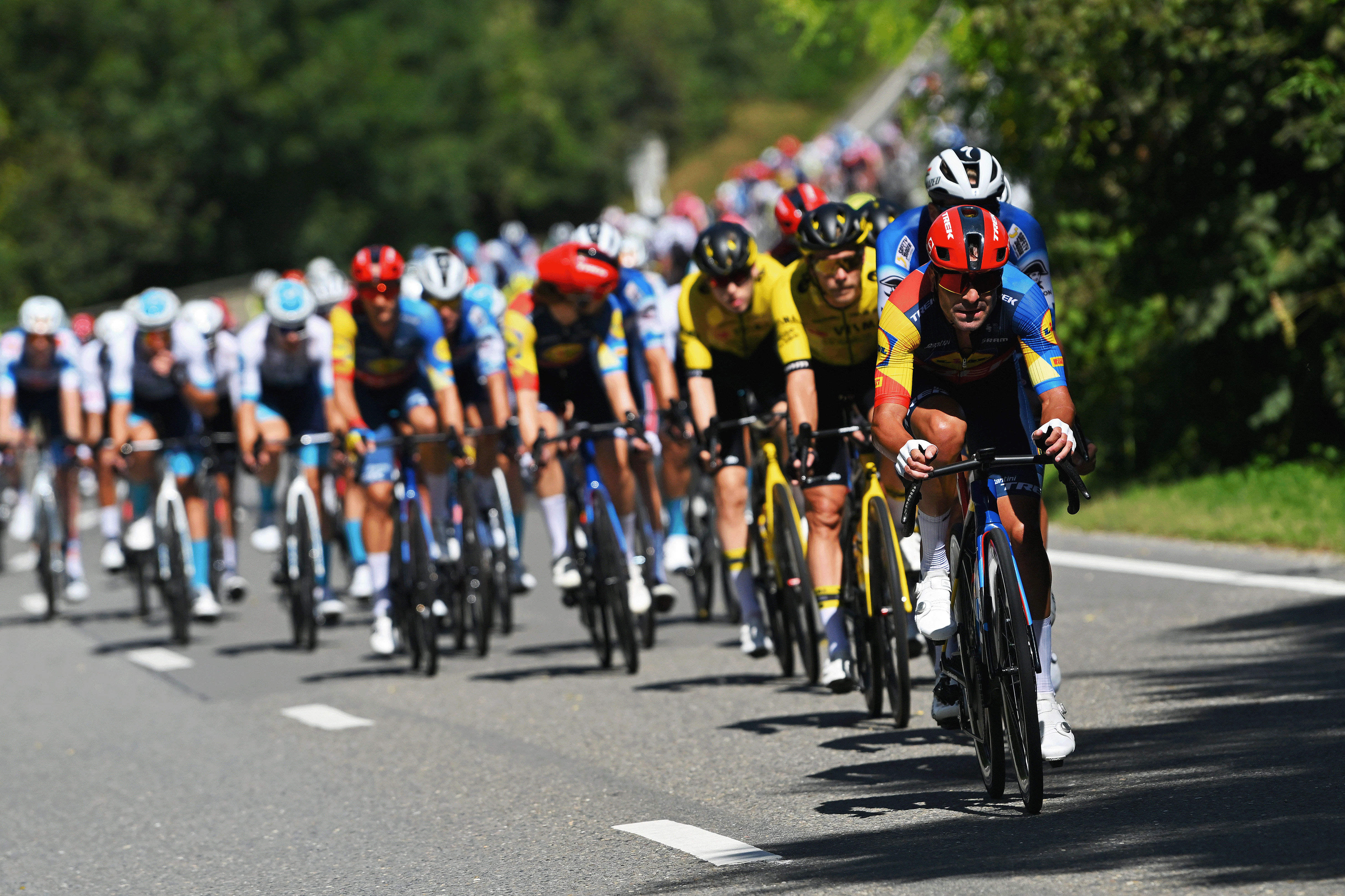
The UCI's decision to oblige WorldTour teams to ride more of the top series races each season could leave teams significantly out of pocket, due to the high costs involved in international race travel.
Lidl-Trek team manager Luca Guercilena told Cyclingnews that the new rule will force teams to 'pay to race' as costs for teams to travel to overseas races outstrip the usual perks race organisers provide for them. The rule could also give race organisers the upper hand in any race and start fee negotiations.
From 2026, all the men's WorldTour can only opt out of one race on the WorldTour calendar. Until now, teams could opt out of any WorldTour race added to the calendar after 2017. Teams sometimes decide to miss certain races if their sponsors have no business interests in the location or if they preferred to ride other non-WorldTour races or send riders to altitude training camps.
All the 18 WorldTour teams raced the recent Tour Down Under but UAE Team Emirates-XRG, Alpecin-Deceuninck, Bahrain Victorious, Decathlon-AG2R, Arkéa-B&B Hotels and Visma-Lease a Bike opted to return home rather than spend another week in Australia and ride the Cadel Evans Great Ocean Road Race.
Only 16 WorldTour teams rode the 2024 Tour of Guangxi in China. EF Education-EasyPost, Intermarché-Wanty, Picnic-PostNl and Jayco-AlUla are the only teams to have competed in all of the WorldTour races in the past two years.
From 2026 the WorldTour teams can choose to skip one WorldTour race per season, but can't be absent from the same event more than once during the three-year WorldTour cycle and no more than four teams can be absent from the same race.
There is more flexibility in the women's WorldTour, at least for now, but all the women's WorldTour teams have to ride the Vuelta España Femenina, the Giro d’Italia Women and Tour de France Femmes in 2026.
“By modifying the participation rules for the UCI WorldTour and UCI Women’s WorldTour, organisers, riders and fans can be sure that all events in these two leading series for men’s and women’s professional road cycling will feature the best teams in the world," UCI President David Lappartient said when the rule change was announced on Saturday, alongside a ban on the repeated inhalation of carbon monoxide.
The change in WorldTour race participation was approved by the Professional Cycling Council but the UCI and race organisers can form a powerful majority in the 18-member vote system that approves rule changes.
The UCI is considering a budget cap to limit the spending power of the so-called super teams but Guercilena believes the new WorldTour rule will increase costs for teams and allow organisers to pay the minimum race fee of around €8,500, with teams forced to pay any other travel and logistical costs. The UCI could also add new races to the WorldTour calendar for 2026 as part of wider reforms to the sport.
"There's a paradox. They want to reduce costs and even apply a budget cap, but then the teams will face extra costs," the Lidl-Trek team manager told Cyclingnews.
"It limits the teams' negotiating powers with certain organisers. In the long term, that means the start fee will become the same for every race, and that means the team will struggle to cover their costs."
Race organisers traditionally cover the costs for teams to travel to races but teams have sent more and more performance staff and taken more and more equipment to races in recent years, which aren't often covered by any start fee. Long haul overseas travel has further increased the costs.
The Tour de France usually offers teams 25 beds in hotels during the race but teams have to pay for any extra beds in advance, with some teams spending close to €100,000 just for extra places and extra costs.
"At the 2024 UCI seminar, it was shown that the teams spent 7% of the budget to go to races. Instead of changing the business model, they are implementing change in favour of the organization," Guercilena wrote on X when the UCI announced the new rule for 2026.
"Until now, for some trips, the teams could negotiate higher expenses, now it'll be: Teams will pay to race."







